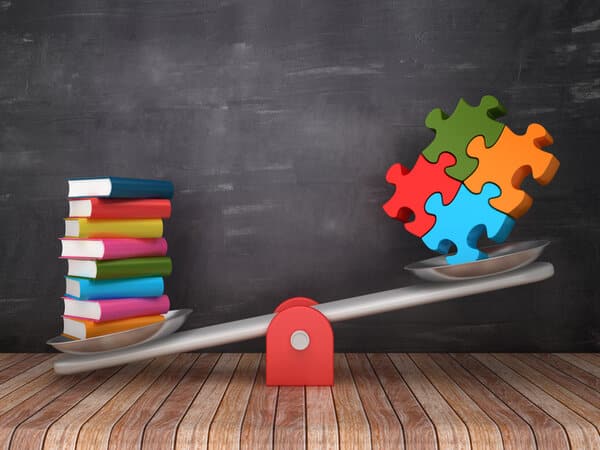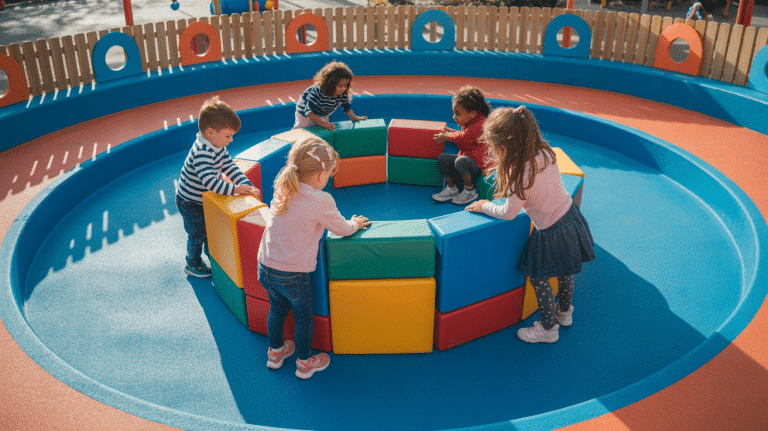Extracurricular activities are essential for the holistic development of teenagers.
These activities extend beyond the classroom, giving your child opportunities for personal growth, skill acquisition and social engagement. They promote mental and emotional well-being, reduce stress and provide them an outlet for self-expression.
Engaging in sports, arts, clubs, and volunteering nurtures their talents and helps your child develop vital life skills as well. Teens learn time management, teamwork and responsibility while discovering their passions through the right activities.
British curriculum schools in Dubai encourage students to participate in extracurriculars to enhance their university applications. Their after-school activities show they are well-rounded individuals who can balance their lifestyle and daily routine.
Finding the Right Balance Between Academics and Extracurriculars
Many teens participate in more than one after-school activity. Because of this, they may sometimes find it challenging to balance their academics with their extracurriculars.
Advising your child to drop one after-school activity or more isn’t the only thing you can do to help them find the right balance between their studies and extracurriculars. If your teen loves and excels in their teams or clubs, asking them to give them up may not be a good idea.
You can help your child juggle academic and extracurricular activities effectively through the following ways:
Teach Your Child how To Prioritise
Prioritising is an important part of juggling different activities and responsibilities effectively. As such, it is a skill you should teach your child.
Teach your child how to set their priorities. There will be instances where a competition and a major test happen within the same week.
In situations where your teen has to prepare for two crucial events, you should help them decide which is more important for their future. This is particularly essential if they are in their last year of secondary school so they know which one to spend more time on.
If your teen is relying on a sports competition to improve their chances of getting academic scholarships, explain to them that they can spend a few extra hours practising their sport.
However, ensure they also spend at least an hour revising for their exam daily.
When your child knows how to prioritise, they can maintain a clear sense of direction and make it easier for them to manage their time effectively.
Share Effective Time Management Techniques
As mentioned, having a daily and weekly schedule enables your child to manage their time properly. However, there are other tips and techniques you can teach them so that they can balance their studies and extracurricular activities.
Some time management techniques you can teach them include the following:
Pomodoro Technique
The Pomodoro Technique involves breaking tasks into intervals, traditionally 25 minutes. After each interval, they take a short five-minute break.
After completing four cycles, your child can take a longer break that can last for 15 to 30 minutes.
Give your child a timer they can use to ensure they stick to each cycle and break time.
This method can help your child tackle complex assignments or study sessions in manageable increments, boost their concentration and reduce burnout simultaneously.
Eisenhower Matrix
This technique, which was invented by US President Dwight Eisenhower, involves having your child organise their tasks under four quadrants: important, unimportant, urgent and not urgent.
Urgent tasks are those that your child needs to do immediately. The things they list under the important box should contribute to their long-term goals.
Ideally, your child should only work on the tasks in the urgent and important quadrants and ignore or ask others for help with the ones in the unimportant and not urgent boxes.
Time Blocking Method
Time blocking involves scheduling the day into distinct blocks dedicated to specific tasks or activities.
Ask your child to write everything they have to do chronologically from the moment they wake up. Have them estimate the time they need to do them and jot this down beside each task.
Advise them to add buffer times between each time block to allow for delays or adjustments so they can complete each task.
By allocating set periods for studying, attending classes, extracurriculars, and leisure, your teen can manage their time more efficiently. This approach helps students stay organised, maintain focus, and prevent procrastination. It also allows them to strike a balance between academics and personal life.
Remind Your Child to Avoid Procrastinating
Most students who tend to procrastinate experience challenges managing their time.
When your child procrastinates, they can fall behind in their studies and submit unsatisfactory projects. As a result, they have to spend more time studying and rectifying their assignments, which will affect their after-school activities.
Because of this, you need to prevent your child from developing the habit of procrastinating.
The best way to do this is to remind your teen to follow their daily schedule and manage their time effectively.
Teach Your Child Healthy Self-Care Practices
Balancing academics and extracurricular activities can be mentally and physically taxing, which means you should ensure your child follows self-care practices to stay healthy.
Make sure your teen has a balanced diet, engages in regular physical activity and gets enough quality sleep every night.
These practices boost their overall well-being and improve their ability to handle the demands of their studies and extracurriculars.
Additionally, keep in mind that stress can affect teenagers trying to balance academics and extracurricular activities.
Teach your child simple stress management techniques like deep breathing exercises, meditation, and mindfulness. These practices can help them remain calm and focused even during demanding times.
Lastly, while academics and extracurriculars are essential, it’s equally crucial for teenagers to have time for relaxation and socialising. As such, encourage your child to schedule downtime and maintain connections with you, their other family members and their friends.
These moments of relaxation and social interactions are essential for their mental and emotional well-being.
Your teen will likely encounter challenges balancing academics and extracurricular activities throughout their academic journey but with these tips, and your guidance and support, your child can achieve success and growth in both areas.













